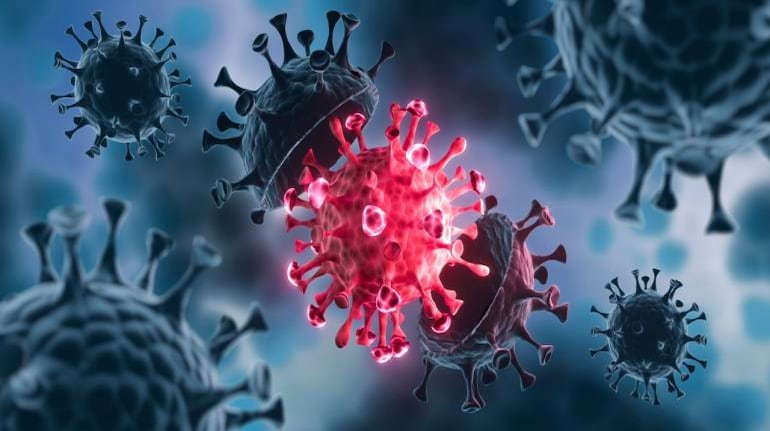



An oral drug used to treat abnormal levels of fatty substances in the blood could reduce infection caused by the SARS-CoV-2 virus by up to 70 per cent, according to a lab study published on Friday.
The team led by researchers from the University of Birmingham in the UK found that fenofibrate and its active form fenofibric acid can significantly reduce SARS-COV-2 infection, that causes COVID-19, in human cells in the laboratory.
The reduction of infection was obtained using concentrations of the drug which are safe and achievable using the standard clinical dose of fenofibrate, the researchers said.
"Our data indicates that fenofibrate may have the potential to reduce the severity of COVID-19 symptoms and also virus spread,” said study co-author Elisa Vicenzi, of the San Raffaele Scientific Institute in Italy.
Follow our LIVE blog for latest updates of the novel coronavirus pandemic
"Given that fenofibrate is an oral drug which is very cheap and available worldwide, together with its extensive history of clinical use and its good safety profile, our data has global implications -- especially in low-middle income countries," Vicenzi said.
The researchers noted that the drug, if cleared in clinical trials, may be useful in people for whom vaccines are not recommended or suitable such as children, those with hyper-immune disorders and those using immune-suppressants.
Fenofibrate is approved for use by most countries in the world including the US Food and Drug Administration (FDA) and the UK''s National Institute for Health and Care Excellence (NICE), they said.
It is an oral drug currently used to treat conditions such as high levels of cholesterol and lipids in the blood.
The researchers said two clinical trials of the drug are currently underway in hospitalised COVID-19 patients led by the Hospital of the University of Pennsylvania in the US and Hebrew University of Jerusalem in Israel.
SARS-CoV-2 infects the host through an interaction between the spike protein on the surface of the virus and the ACE2 receptor protein on host cells.
The spike protein helps the SARS-CoV-2 virus to enter and infect the human cells while as the ACE2 receptor found in tissues throughout the body acts as a gateway for the virus.
The study, published in the journal Frontiers in Pharmacology, tested a panel of already licensed drugs -- including fenofibrate -- to identify candidates that disrupt ACE2 and spike interactions.
The researchers tested the efficacy of fenofibrate in reducing infection in cells in the laboratory using the original strains of the SARS-CoV-2 virus isolated in 2020.
They found fenofibrate reduced infection by up to 70 per cent.
The team noted that additional unpublished data also indicates that fenofibrate is equally effective against the newer variants of SARS-CoV-2 including the Alpha and Beta variants.
Research is also ongoing into the efficacy of the drug against the Delta variant, they said.
"The development of new more infectious SARS-CoV-2 variants has resulted in a rapid expansion in infection rates and deaths in several countries around the world," said study corresponding author Farhat Khanim, of the University of Birmingham.
"Whilst vaccine programmes will hopefully reduce infection rates and virus spread in the longer term, there is still an urgent need to expand our arsenal of drugs to treat SARS-CoV-2-positive patients," Khanim said.
The researchers noted that there is an urgent need further clinical studies to establish whether fenofibrate is a potential therapeutic agent to treat SARS-CoV-2 infection.
In addition the University of Birmingham and the San Raffaele Scientific Institute, the team also included researchers from Keele University, UK, the University of Copenhagen in Denmark, and the University of Liverpool in the UK.
Follow our full coverage of the coronavirus pandemic here.
Discover the latest Business News, Sensex, and Nifty updates. Obtain Personal Finance insights, tax queries, and expert opinions on Moneycontrol or download the Moneycontrol App to stay updated!